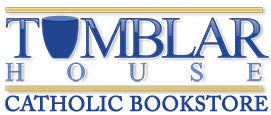Our Daily Bread?
For the clergy and the religious, and those who attend daily Mass and pray the Liturgy of the Hours of the Catholic Church, the “Our Father” prayer is recited at least three times a day. Once at Lauds (Morning Prayer), once at Vespers (Evening Prayer), and once during Mass. It is said five more times, once at the beginning of each decade if one prays the Rosary. Often we say it quickly and gloss over its rich and deep theological meaning.
One such insight that is often lost is that of the phrase “Give us this day our daily bread.” The English translation does not do justice to the original Greek nor even to the Latin translation. In this article, I wish to examine the true meaning of what we translate as “daily” within the Our Father, especially during this time of Eucharistic Revival and Renewal in the Church.
It should be noted from the outset that the New Testament was written completely in Greek. Therefore, we must turn to the original Greek text. The original word used in Greek is έπιούσιον (epiousios). This word occurs only in two places in the New Testament: Matthew 6:11 and Luke 11:3. In the he Catechism of the Catholic Church, the following is said about the word epiousios:
“Daily” (epiousios) occurs nowhere else in the New Testament. Taken in a temporal sense, this word is a pedagogical repetition of “this day,” to confirm us in trust “without reservation.” Taken in the qualitative sense, it signifies what is necessary for life, and more broadly every good thing sufficient for subsistence. Taken literally (epi-ousios: “super-essential”), it refers directly to the Bread of Life, the Body of Christ, the “medicine of immortality,” without which we have no life within us. Finally in this connection, its heavenly meaning is evident: “this day” is the Day of the Lord, the day of the feast of the kingdom, anticipated in the Eucharist that is already the foretaste of the kingdom to come. For this reason it is fitting for the Eucharistic liturgy to be celebrated each day. (CCC, 2837)
This, however, is not some new development in the Church. It is quite ancient. Unfortunately, in modern times, most members of the Church have forgotten or simply do not know of this.
This point is made even clearer when one turns to the Vulgate, the translation of the Hebrew and Greek texts of the Bible into Latin by St. Jerome. We read in Jerome's translation of Matthew 6:11: “Panem nostrum supersubstantialem da nobis hodie.” Here it is clear to see that the word is translated as “supersubstantial” and not merely as “daily.” In the Douay-Rheims, this is translated as “Give us this day our supersubstantial bread.” [St. Jerome does translate, however, Luke's passage as “Panem nostrum qoutidianem da nobis hodie,” where we get the common Latin translation of the “Our Father” which we pray at Mass, the Liturgy of the Hours, and with our Rosaries. This is where we get the usage of “daily” instead of “supersubstantial.” This does not, however, take away from Matthew's meaning of the word. Dr. Brant Pitre in his excellent treatise Jesus and the Last Supper (Eerdmans, 2017) offers a number of meanings for the word epiousios which I highly encourage the reader to explore.]
In St. Thomas Aquinas' Catena Aurea, he cites St. Jerome a number of times on this passage:
Jerome The Greek word here which we render, ‘supersubstantialis,’ is επιουσιος. The LXX often make use of the word, περιουσιος, by which we find, on reference to the Hebrew, they always render the word, sogola. Symmachus translates it εξαιρετος, that is, ‘chief,’ or ‘excellent,’ though in one place he has interpreted ‘peculiar.’ When then we pray God to give us our ‘peculiar’ or ‘chief’ bread, we mean Him who says in the Gospel, “I am the living bread which came down from heaven.” (John 6:51)
We may also interpret the word ‘supersubstantialis’ otherwise, as that which is above all other substances, and more excellent than all creatures, to wit, the body of the Lord.
Jerome's comments make it clear that, in translating this text, the “chief,” “excellent,” or “peculiar” bread is referring to the Eucharist.
The Early Church Fathers were also quite aware of this connection and made it clear in their writings. Although not all agreed as to what the proper meaning of epiousios was, a good number of them wrote in favor of it being understood as the Eucharist. St. Cyprian is such an example. Again, Aquinas cites Cyprian in reference to Matthew's text:
Cyprian For Christ is the bread of life, and this bread belongs not to all men, but to us. This bread we pray that it be given day by day, lest we who are in Christ, and who daily receive the Eucharist for food of salvation, should by the admission of any grievous crime, and our being therefore forbidden the heavenly bread, be separated from the body of Christ. Hence then we pray, that we who abide in Christ, may not draw back from His sanctification and His body.
In concluding this article, I would like to cite the wisdom of the Angelic Doctor on this passage. In his Commentary on the Gospel of Matthew, Aquinas greatly expounds upon what the various meanings of epiousios could mean. I offer and encourage the reader to pursue Aquinas' extensive writings on this subject. Here, however, I would like to quote a brief section of his long treatise:
590. Supersubstantial bread. Jerome says that in Greek this is ‘epiousion’, and Symmachus translated it ‘special’ or ‘extraordinary’; but the old translation has daily. But what would be supersubstantial, that is, above all substances, appears in Ephesians: which he wrought in Christ . . . setting him . . . above all principality (Eph 1:20–21). He says daily, for it should be received every day, but not by everyone; hence it is said in the book On Church Dogmas: I neither praise nor blame this.
But it should be received daily in the Church, or at least it may be received spiritually by the faithful in faith. But in the eastern church it is not received daily in church, for the Mass is not celebrated daily, but only once a week. But because the Church allows it, it suffices that they receive spiritually every day, and not sacramentally.
While recognizing the differences between the East and the West, Aquinas here notes that the reason “daily” was used was to emphasize the importance of the daily reception of Holy Communion in the Western Church. That being said, daily reception of Holy Communion is not a required practice in the Western Church. It is a recommended practice but not an obligatory one.
The Our Father, then, is not merely a prayer asking God for the basic needs of day-to-day life. It is much more profound than that. It acknowledges and asks God to provide us with the Bread of Eternal Life. It asks God to give us the Eucharist as our spiritual food to sustain us in this world so that we might live with Him in the life to come.

